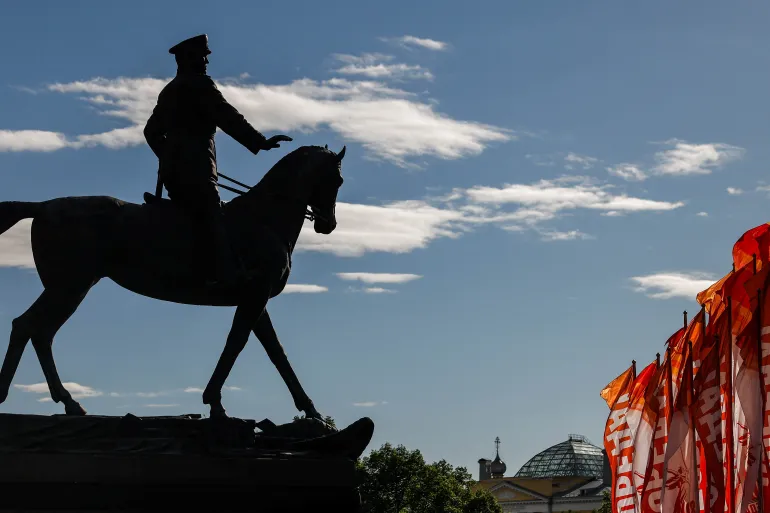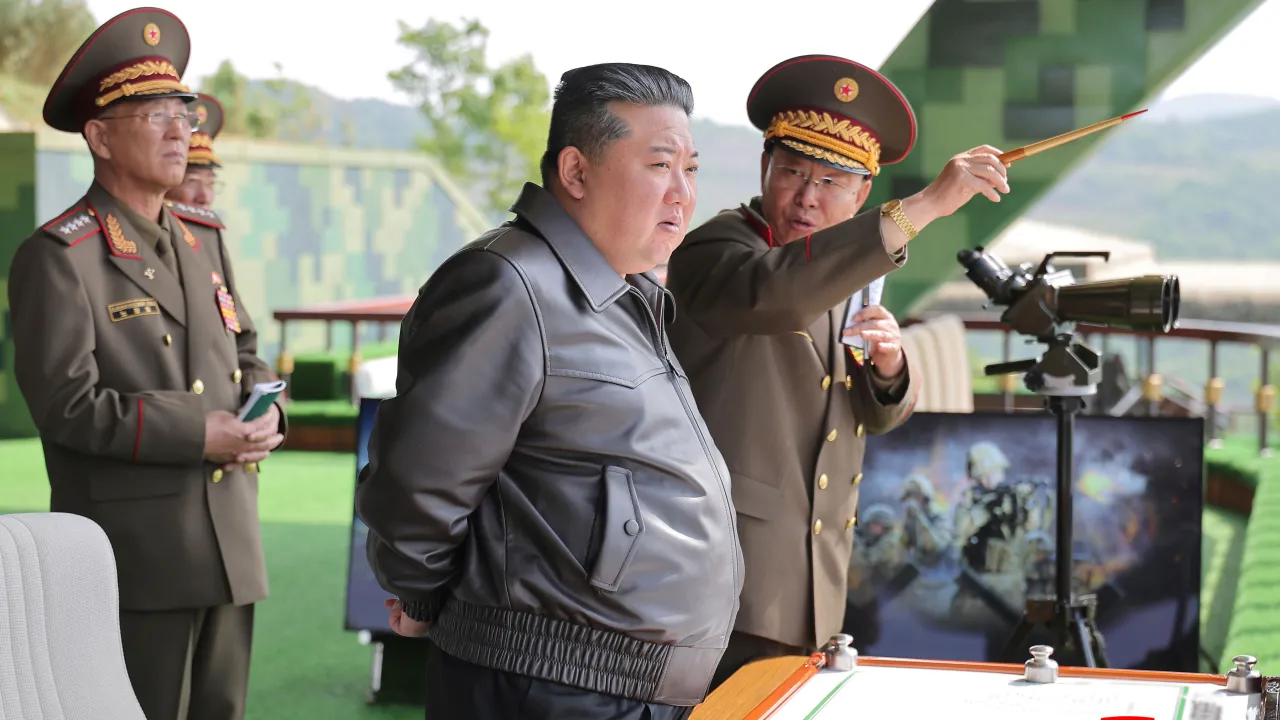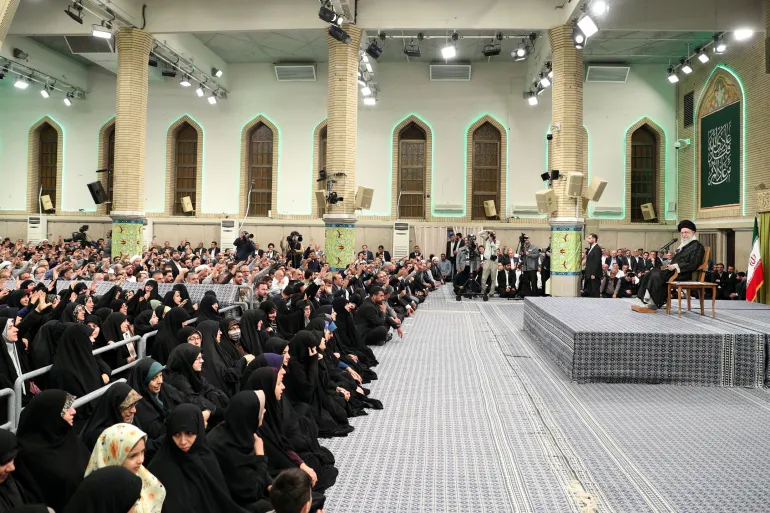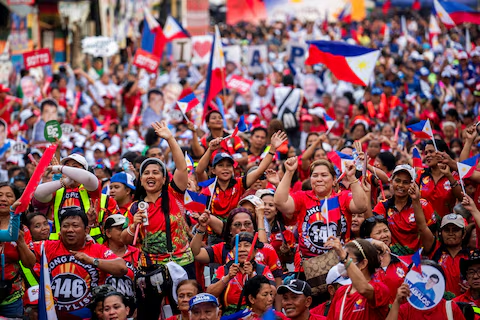As Russia prepares to mark the 80th anniversary of its Victory Day over Nazi Germany on May 9, an escalating drone war and mutual threats between Moscow and Kyiv have cast a long shadow over the commemorations. Victory Day, once a solemn and unifying event across post-Soviet nations, now finds itself entangled in the bloodshed and symbolism of the ongoing Ukraine war.
On May 6, Moscow’s air defense systems reportedly intercepted 19 Ukrainian drones targeting the capital. The incident forced the temporary closure of several airports and reignited fears that Ukraine may seek to disrupt Russia’s premier patriotic holiday. With such attacks becoming increasingly frequent in recent weeks, Moscow is tightening security across the city, installing jamming equipment, and preparing its military and police for any potential disruption to the parade.
Ukraine has remained noncommittal about whether it will strike during the event. President Volodymyr Zelenskyy said that his government “cannot guarantee the safety” of foreign dignitaries attending the Moscow ceremonies, pointing to the unpredictable nature of active warfare. Speaking during a press briefing, Zelenskyy added, “We do not play by Putin’s rules. A three-day ceasefire while he celebrates is not serious. If we are to talk, let’s talk about a 30-day real truce.”
Zelenskyy’s dismissal of Russian President Vladimir Putin’s offer of a unilateral 72-hour ceasefire from May 8 to 10 has only intensified tensions. He suggested that the offer was a hollow PR gesture meant to bolster Putin’s domestic standing rather than a genuine olive branch for peace. Kyiv’s stance is that the only way to achieve safety and de-escalation is through serious negotiations with broader goals, including Russian withdrawal from occupied Ukrainian territory.
Meanwhile, Russia responded with a warning of its own. Dmitry Medvedev, deputy chairman of the Russian Security Council and a close Putin ally, said in a strongly worded statement that Kyiv’s survival “could not be guaranteed” if it were to target Moscow during the celebrations. “If Ukraine dares to strike during Victory Day, there will be consequences beyond what they imagine,” Medvedev stated, implying a possible intensification of military retaliation.
The Kremlin echoed this sentiment by calling Ukraine’s reaction to the proposed ceasefire “ambiguous” and urging a “clear, responsible answer.” Yet Ukraine has made no formal commitment either way, leaving the situation charged with uncertainty.
For its part, Moscow is pressing forward with preparations for the Victory Day event. In past years, the parade on Red Square has been used to showcase military might and project national unity. This year, however, it may reflect the strains of war. The usual flyovers have been canceled, and some Russian cities have announced scaled-down commemorations due to security concerns.
Western analysts view the increased frequency of drone attacks as part of Ukraine’s evolving asymmetric warfare strategy, meant to stretch Russian resources and morale. Though drone strikes have caused minimal physical damage so far, their psychological impact — especially around such a symbolically potent date — is significant.
The international community is watching closely, as the chance of symbolic escalation looms large. Victory Day is not just about historical remembrance in Russia; it is also a core pillar of the state’s nationalist narrative. Any disruption — real or perceived — could provoke an outsized response.
As May 9 approaches, the prospect of an uneasy, tense commemoration in a capital under the constant threat of aerial assault underlines the deep divisions and dangers that now define the Russia-Ukraine conflict. Whether the holiday will pass peacefully or spark further hostilities remains to be seen, but few expect a day of calm amid the chaos of war.
Source; Al Jazeera



